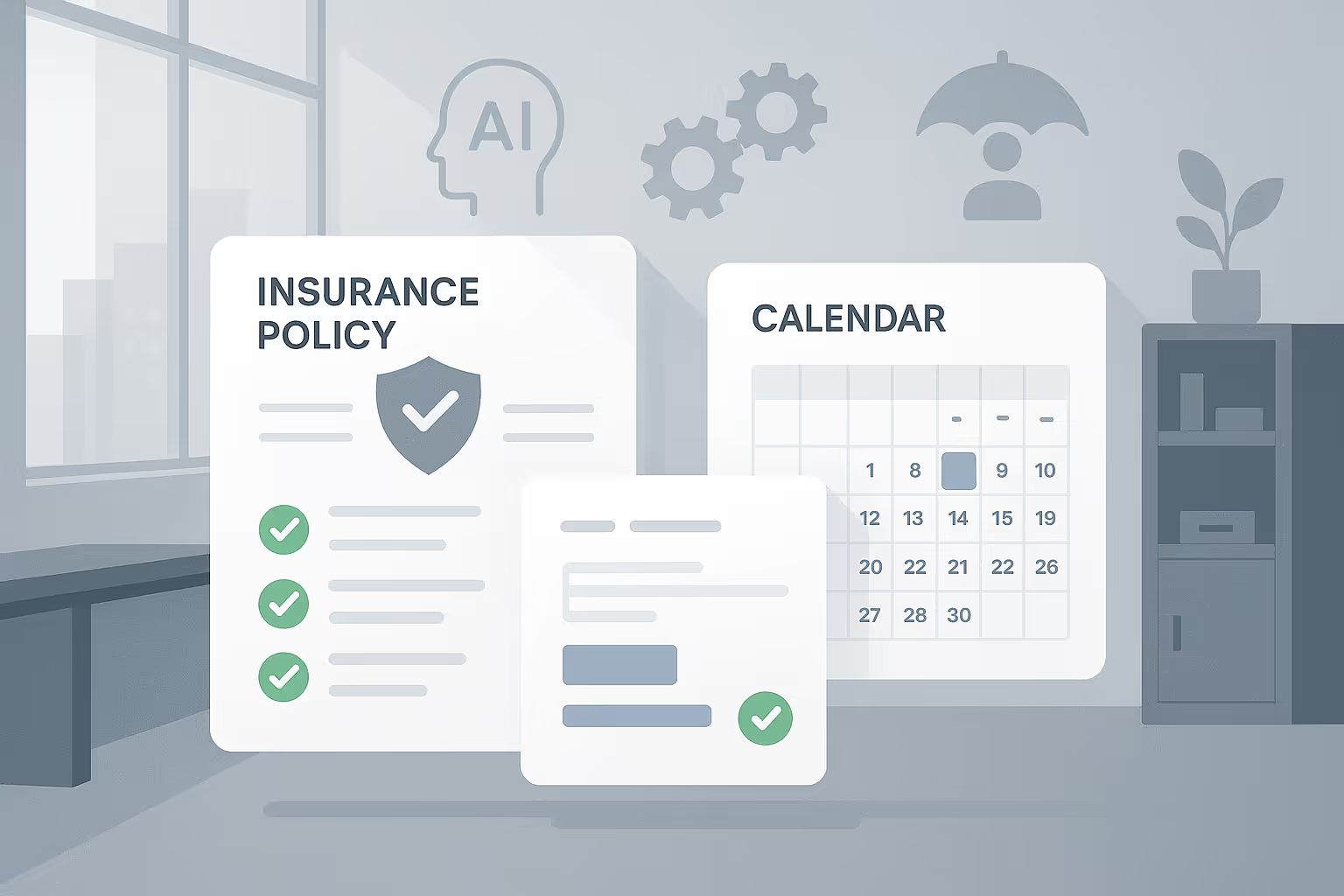Automating Insurance: From Eligibility to Scheduling
In the age of digital transformation, the insurance industry stands on the cusp of a revolution. The integration of AI-driven technologies into core processes, such as insurance eligibility verification and appointment scheduling, is not just enhancing efficiency but reshaping the way companies operate. With an increasing focus on customer experience and operational accuracy, AI has emerged as a pivotal force in driving this change.
The Challenge: Complexity and Compliance
A closer look at insurance operations reveals that much of the industry's inefficiencies stem from manually intensive workflows and the potential for error inherent in these processes. Each day, insurance companies face the daunting task of verifying policy data — a cumbersome process ripe with opportunities for human error and non-compliance. Similarly, the challenge of managing countless appointment schedules without automated tools can lead to missed opportunities and frustrated customers.
Compliance, a cornerstone of the insurance sector, further complicates these tasks. Ensuring that each step of the process adheres to pertinent regulations is not merely advised but mandatory. Failure to comply can result in heavy penalties, strained client relationships, and damaged reputations.
AI to the Rescue: Evolving Insurance Workflows
Enter AI — specifically, platforms like Fluents that offer bespoke solutions for these complex challenges. Through AI scheduling agents for insurance appointments, and insurance eligibility verification AI methodologies, many of these hurdles are efficiently addressed.
Fluents' voice AI agents, for instance, are transforming the way eligibility verification is performed. By automating voice interactions, these agents reduce the scope for errors while ensuring compliance through audit-ready transcripts. Consider a case where an insurance provider needs to verify eligibility for thousands of prospects quickly: with AI-driven automation, what once took hours can now be accomplished within minutes, with improved accuracy.
Similarly, the appointment scheduling process is becoming a seamless experience through the use of AI. Traditional static IVRs and manual systems are being replaced by intelligent voice workflows that manage appointments with sub-second latency, ensuring that no call is missed or mismanaged. Through Fluents' no-code tools and API integrations, any company can tailor these solutions to their needs, optimizing both inbound and outbound communications.
Broader Implications and The Path Forward
The integration of AI into these workflows isn't just about operational efficiency; it's about a shift in how the insurance industry views technology and its potential. The rise of AI entails significant ethical considerations — chiefly concerning data privacy and security. Stakeholders must continuously evaluate how data is stored and processed, ensuring that customer information is safeguarded against breaches.
From an operational standpoint, companies that adopt AI solutions like those provided by Fluents, position themselves as vanguards of the industry. By minimizing manual interventions, these companies not only enhance accuracy but also free up resources that can be redirected to value-added services, furthering client satisfaction and loyalty.
A Future Defined by Innovation
As we look to the future, the trajectory set by AI in insurance suggests even greater possibilities. The seamless integration and interoperability of AI tools across various departments will not only continue to streamline processes but will also foster an environment of continuous improvement and innovation.
Ultimately, the shift towards automation represents a paradigm shift for the insurance industry. As companies harness the capabilities of platforms like Fluents, they pave the way for an era where precision, speed, and client engagement reach new heights. In doing so, they not only ensure competitive advantage but also deliver on the promise of exceptional customer experiences.
From 10 calls a day to 85,000, Fluents scales with you. Automate globally, integrate deeply, and never worry about your call infrastructure again.

Stay Connected
Check out our latest updates, customer stories, and resources to keep leveling up with Fluents.
FAQs on AI in Insurance Workflows
Discover the answers to common questions regarding AI in insurance workflows.
AI in eligibility verification revolutionizes the insurance domain by automating intricate, repetitive processes and significantly reducing human error. For instance, AI-driven platforms like Fluents can verify eligibility across thousands of policies in mere minutes, offering audit-ready transcripts to ensure compliance. This enhancement not only increases accuracy but also adherence to stringent regulations, mitigating risks of penalties. On the scheduling front, AI transforms appointment management by replacing static IVR systems with dynamic, intelligent voice workflows. These manage calls with sub-second latency, ensuring every client interaction is efficient and precise. By integrating no-code tools and API solutions, insurers can customize these systems to align perfectly with their operational needs, enhancing customer satisfaction and eliminating overlooked appointments.
Implementing AI within the insurance sector raises important ethical questions, primarily around data privacy and security. As insurance companies automate workflows, safeguarding client data becomes paramount to prevent breaches and maintain trust. Companies must regularly assess their data protocols to comply with relevant regulations and uphold client confidentiality. Additionally, ethical deployment involves transparent AI algorithms to ensure fair decision-making that avoids bias. Engaging stakeholders in continual dialogue can help balance innovation with ethical responsibility, fostering an environment of trust and transparency. By focusing on these aspects, insurers can harness AI's potential while reinforcing strong client relationships through ethical practices.
To capitalize on AI's transformative potential, insurance companies should focus on strategic integration and scalability. Adopting AI platforms like Fluents can position insurers as trailblazers, driving innovation across the industry. The key lies in embracing interoperable AI tools that streamline processes and improve operational efficiency across all departments. Insurers should also invest in continuous improvement strategies, such as training staff to work symbiotically with AI, fostering a culture of innovation and adaptation. By aligning AI advancements with long-term business goals, insurers not only ensure a competitive edge but also pave the way for enhanced customer experiences and sustained growth in an increasingly digital landscape.




